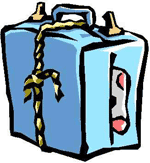After the Trip

Most often, it is not necessary to have a medical examination following a brief holiday abroad.
However, keep in mind that you may carry intestinal infections onward for the following month, which is why you should be extra careful with food hygiene and obviously with hand hygiene after visiting the toilet.
Contact your health centre or occupational health centre if you have
• bloody diarrhoea or mucus in the stool
• diarrhoea that has lasted longer than 5-6 days (shorter time for children)
• diarrhoea with high fever, or if you are very tired / lethargic.
If you are a blood donor, you may not give blood until at least 6 months have passed since your completed malaria prophylaxis!
If you have been prescribed a malaria prophylaxis during your trip, it is important that you continue with it for a certain period of time after you have left the malaria area. This can be easy to forget, but one tip is to write reminders in your calendar so that you will know when it is time to take your tablets.
If you get fever, chills, headache, nausea, abdominal pains, diarrhoea etc. after coming home, seek a doctor immediately!
Remember that malaria can occur several months after your visit to a malarial region. So once your sun burn has faded, it is not at all certain that a doctor will immediately associate your discomfort with a tropical disease.That is why you should always tell you doctor that you were in a malarial region. This facilitates the diagnosis and you can begin treatment sooner, which reduces any unnecessary suffering and even death.
